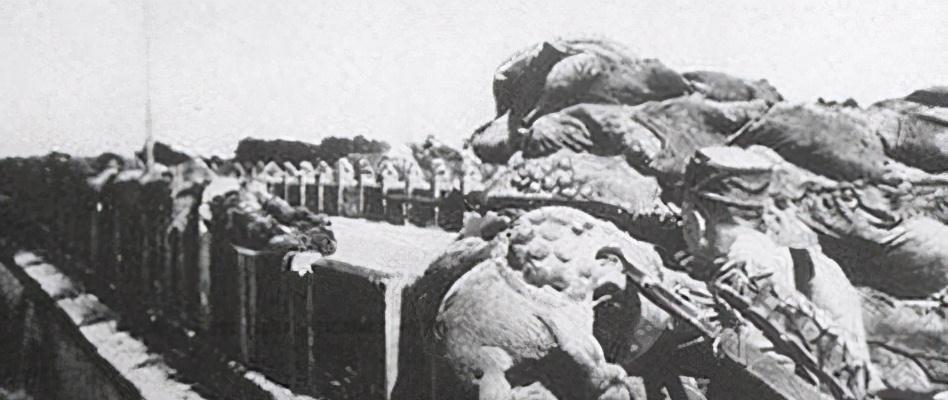The Anti-Japanese War eliminated the Sun and Moon, and changed the dynasty and changed the generations. ——" The Ninetieth Anniversary of the Founding of the Party Has a Feeling".
On July 7, 1937, after the outbreak of the July 7 Incident. On July 8 of the same year, the Central Committee of the Communist Party of China sent a telegram to the whole country, calling on the Chinese military and people to unite and jointly resist the Japanese aggressors. The people of all ethnic groups and all walks of life throughout the country responded enthusiastically, and the anti-Japanese salvation movement was at an unprecedented height. At this point, the prelude to the national War of Resistance Against Japanese Aggression has been opened.

In this arduous war of resistance, countless heroes and heroes emerged in our country, who threw their heads and spilled their blood for the motherland, and did not hesitate to sacrifice their young lives; they were the backbone of the nation and the pride of the country.
Since the outbreak of the War of Resistance Against Japanese Aggression, General Liu Hekong has begun to engage in underground intelligence work, and has sent a large amount of valuable military intelligence to the Chinese army. He was awarded major general at the age of 41 and a member of the Central Commission for Discipline Inspection at the age of 68. So, what kind of legendary experience did he have?
This also begins with his participation in the revolution.
Liu Hekong was born in 1914 in Yongxin County, Jiangxi Province. Since ancient times, Yongxin County has been a treasure land of outstanding people, and has bred countless celebrities and heroes. In addition, it is also a famous old revolutionary area and "General County" in the country, where there have been several founding generals.
Born here, Liu Hekong grew up under the influence of patriotic education and progressive revolutionary ideas. Influenced by this, he joined the Communist Youth League of China at the age of 16 and began his magnificent revolutionary career.
In 1930, Liu Hekong joined the Chinese Workers' and Peasants' Red Army, and followed the troops to participate in successive anti-"encirclement and suppression" operations in the central base areas and the 25,000-mile Long March.
After the outbreak of the War of Resistance Against Japanese Aggression, Liu Hekong went to Shanghai to carry out underground secret radio intelligence work. At that time, our army's radio intelligence work was not mature enough, and in order to better complete the work, Liu Hekong went to the Soviet Union to study in 1938. During this period, he learned advanced radio professional knowledge and fully improved his comprehensive quality.
In 1939, Liu Hekong was dispatched by the General Staff of the Soviet Army to return to Shanghai and continue to engage in underground radio intelligence work. At that time, Shanghai had been occupied by the Japanese. In order to avoid the pursuit of the Japanese army, Liu Hekong transferred six times in four years, and his identity was changed three times.
After the outbreak of the Pacific War in 1941, the Shanghai Concession was also occupied by the Japanese army. The Japanese army repeatedly sent spies and traitors to infiltrate the concessions, set up secret service agencies and secret strongholds, and carried out reconnaissance, surveillance, assassination and other activities. The various actions of the Japanese army always threatened the safety of the radio.
At this time, the amount of tasks of Liu Hekong was constantly increasing. Briefings between the station and Ulaanbaatar have been added from Headquarters. When sending a report to Ulaanbaatar, due to the long distance, Liu Hekong often worked from late at night until dawn, although it was very dangerous, but in order to send out intelligence in time, Liu Hekong was not afraid at all.
Unfortunately, late on the night of March 15, 1944, the Japanese army discovered and sent troops to surround Liu Hekong's residence. In this critical situation, he quickly burned the codebook, but the radio was discovered by Japanese agents, and Liu Hekong was arrested and imprisoned.
In prison, he endured inhuman torture, and one of his ears was even deafened by the Japanese army. The Japanese army threatened and seduced him, and Liu Hekong regarded death as a homecoming, and did not say a word. The Japanese army sentenced him to 5 years in prison for "violating military law" and sent him to Shanghai Tilanqiao Prison for detention.
It was not until Japan announced its unconditional surrender that Liu Hekong was successfully rescued by our army.
After the founding of New China, Liu Hekong successively served as director of the Organization Department of the Political Department of East China Military and Political University and director of the Air Force Cadre Department of the East China Military Region. In 1955, at the age of 41, Liu Hekong was awarded the rank of major general.
In 1964, Liu Hekong transferred to local work and successively served as the director of the Political Department of the First Ministry of Machinery Industry, the secretary of the Party Committee of the Machinery Research Institute, and the deputy director of the First Ministry of Machinery Industry.
In 1982, at the age of 68, Liu Hekong once again carried the banner and was elected a member of the 12th Central Commission for Discipline Inspection. According to relevant regulations, Liu Hekong enjoys ministerial-level treatment.
On April 14, 2009, General Liu Hekong died of illness in Beijing at the age of 95.
General Liu Hekong's life was loyal to the motherland and the people, he always adhered to the party's leadership, adhered to the fundamental principle of serving the country and the people, and when facing the Japanese aggressors, he regarded death as a homecoming, showed the iron backbone of a Communist Party member, and paid tribute to General Liu Hekong!